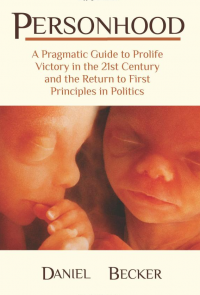Abortion debate - Personhood Alabama
MONTGOMERY — Women seeking abortions in Alabama soon could face laws blocking or restricting their access to the procedure, while physicians and health-care facilities that perform abortions also could fall under new restrictions.
At least seven bills making their way through the Republican-controlled state Legislature would restrict — or even partially ban — abortion procedures in the state.
While none of the bills have passed, and only one has made it from the Senate to the House, several await final approval in one or the other chamber.
The push to further restrict abortion access in Alabama is not new. Lawmakers introduce bills on the issue every year, and the state already limits abortion access at 24 weeks of pregnancy. But the newest crop of bills include one measure banning abortion at 20 weeks unless the mother’s life is in danger. It does not allow exceptions in cases of rape or incest.
Two other bills do not include the word abortion, but they would define a person under Alabama law as “all humans from the moment of fertilization.” Those bills are SB301, sponsored by Sen. Phil Williams, R-Huntsville, and an identical bill, HB405, sponsored by Rep. John Merrill, R-Tuscaloosa.
A third bill, HB409, also sponsored by Merrill, would make the personhood language in SB301 and HB405 part of the state constitution and would require voter approval.
HB409 is a measure that anti-abortion activists, including former state Supreme Court Chief Justice Roy Moore’s Foundation for Moral Law, contend could lead to a challenge of legal abortion in federal court.
The House and Senate health committees, which had joint public hearings on the bills last week, will take up the bills this week.
Opponents of the bills redefining personhood include retired University of Alabama constitutional law professor Martha Morgan. She told the health committees that the bills could result in a ban of all chemical contraception in Alabama and affect other forms of state law, even including property law.
Bill proponents included Richard Rutledge, a Birmingham resident born in Louisiana in 1957. He said had abortion-on-demand been available to his 16-year-old unmarried mother, “I would not be here today.”
Alabama is one of at least 16 Republican-led states considering anti-abortion legislation, prompting speculation about whether the slew of new state laws could, if enacted, push the U.S. Supreme Court closer to reconsidering Roe vs. Wade, the decision that legalized abortion nationally in 1973.
Sen. Scott Beason, R-Gardendale, chairman of the Senate Rules Committee, said he knows of no national group organizing all the state-level action. But Beason said legislators interested in abortion restrictions did meet with some state anti-abortion groups affiliated with national organizations.
“I think things have been bottled up for so long, and for the first time a lot of these bills are actually moving because Republicans are in control,” Beason said. “My goal is to facilitate ushering a pro-life discussion in state government. The bottom line is they would like to see abortions restricted in Alabama,” he said.
Abortion bills in the Alabama Legislature
SB202: Sens. Greg Reed, R-Jasper; Scott Beason, R-Gardendale; Gerald Allen, R-Tuscaloosa — Would prohibit insurance plans participating in the federal health-care plan from offering abortion coverage in Alabama.
Status: Awaits final vote in Senate and must pass House.
SB281: Sens. Shadrach McGill, R-Scottsboro; Reed; Roger Bedford, D-Russellville; Jabo Waggoner, R-Vestavia Hills; Dick Brewbaker, R-Montgomery; Rusty Glover, R-Semmes — Would prohibit health insurance coverage of elective abortions unless the insured pays additional charge for abortion coverage. Goal is to prohibit elective abortion in Alabama.
Status: Awaits full Senate vote and also must pass House.
SB298: Sens. Allen, Beason, Waggoner, Brewbaker, Gerald Dial, R-Lineville; Reed; McGill; Tom Whatley, R-Auburn — Would make it against state law for a physician to administer an abortion-inducing drug to a woman without a doctor’s exam. Gives doctors required guidelines on how to administer the drug.
Status: Awaits full Senate vote before going to House.
SB308: Sens. Clay Scofield, R-Arab; Beason; Paul Bussman, R-Cullman; Bryan Taylor, R-Prattville; Allen; Trip Pittman, R-Montrose; Bill Holtzclaw, R-Madison; Whatley; Reed; Brewbaker; Phil Williams, R-Rainbow City; McGill; Harri Anne Smith, I-Slocomb — Would require a physician to perform an ultrasound, provide verbal explanation of the ultrasound and show the pregnant woman images of the ultrasound before performing an abortion. Includes criminal penalties for non-compliance.
Status: Awaits final reading in Senate before going to House.
HB18: Rep. Kerry Rich, R-Albertville — Would prohibit elective abortions beginning at 20 weeks of pregnancy. Bases restrictions on contention of some physicians and some lawmakers that a fetus is capable of feeling pain. Requires doctor to perform test estimating age of the unborn child before performing an abortion.
Status: Passed House. Awaits Senate action.
SB183: Sen. Reed — Would prohibit health-care plans established under the federal law from providing abortions in Alabama.
Status: Awaits final vote in Senate before going to House.
SB46: Sen. Cam Ward, R-Alabaster — Federal opt-out bill gives health-care providers authority to refuse to perform procedures against their conscience.
Status: Awaits final vote in Senate before going to House.
HB178: Reps. Mary Sue McClurkin, R-Pelham and Rep. Jay Love, R-Montgomery; similar to SB46 — Gives health providers authority to refuse to perform procedures against their conscience.
Status: Awaits action in House committee.
ALISON, the official website of the Alabama Legislature, alisondb.legislature.state.al.us
Other states with current anti-abortion legislation
Arkansas, Florida, Georgia, Iowa, Idaho, Indiana, Kansas, Kentucky, Minnesota, Mississippi, New Jersey, New Mexico, Oklahoma, Ohio, Oregon and South Carolina.
Associated Press
Copyright 2010 THE DECATUR DAILY. All rights reserved.
AP contributed to this report.
Personhood USA is leading the charge of the Personhood Movement, Please help us push forward with your donation today !




